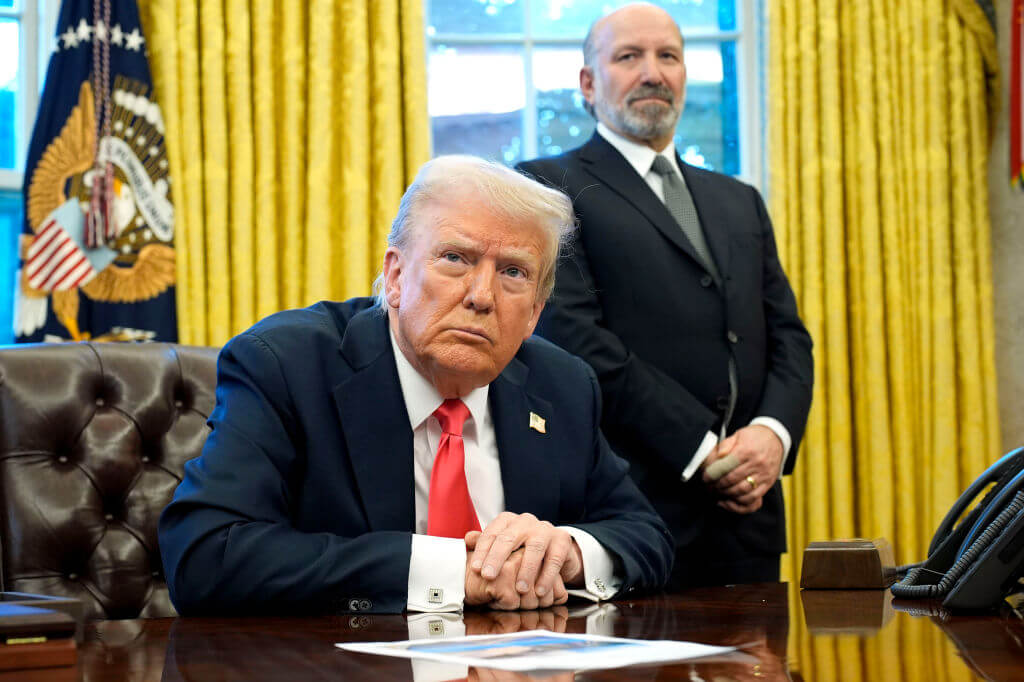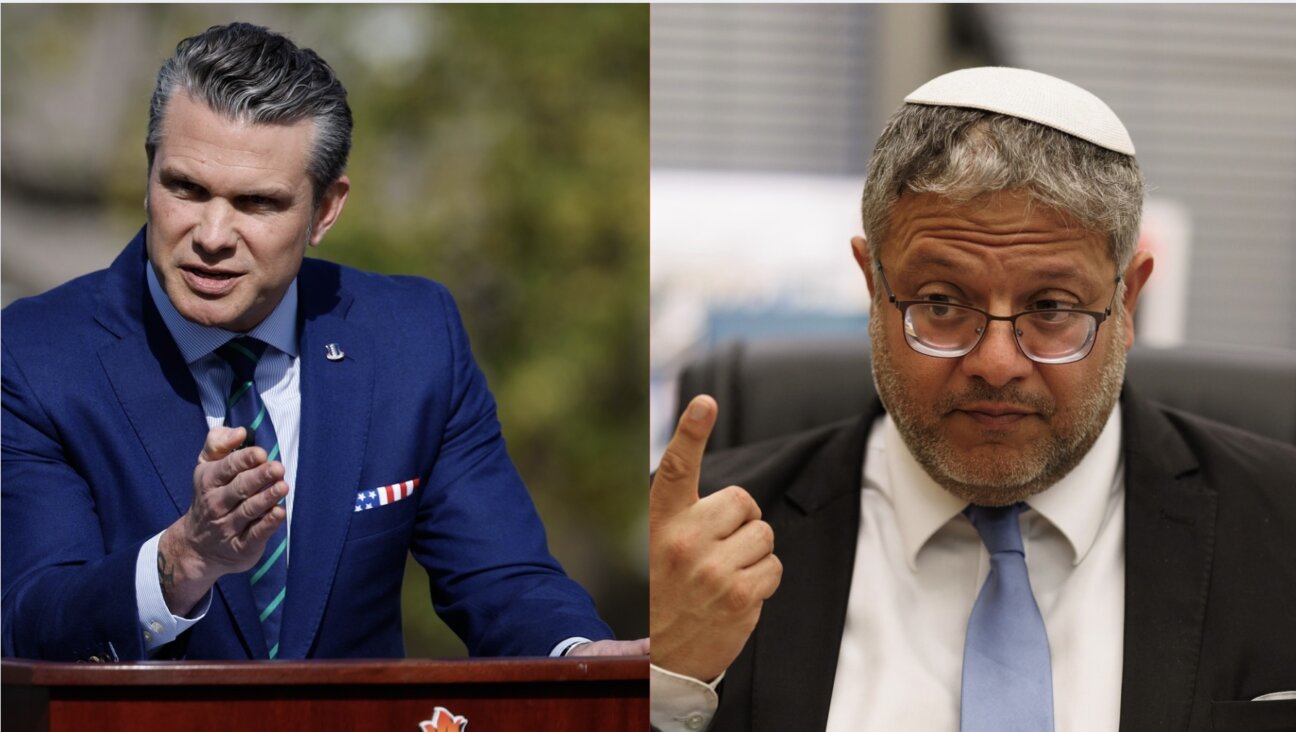We Do Not Know How To Leave Iraq
One measure of how utterly sluggish the debate is over Iraq: the breathlessness with which the media reported Senator John Warner’s proposal for the withdrawal, in September, of 5,000 American troops. That, the good senator said, would send a clear signal to the Iraqi government that the United States has not written it a blank check, that it really must deliver on its promise of movement towards reconciliation.
Five thousand of the 160,000 we currently have in Iraq? After the fruitless months of coaxing, cajoling, threatening and, lately, table-pounding, that will make a tolerable molehill out of the avalanche-prone mountain we’ve been trying in vain to climb? That is a wink, not a proposal; it uses a three-cent stamp to deliver an express letter. Return to sender.
Then what now? Soon, General David Petraeus and Ambassador Ryan Crocker will be delivering their report in Washington. Presumably, they will say that the surge is working and deserves more time, but that we need to press the Iraqis harder toward the essential political reconciliation.
We’ve heard most of that already, most notably in the National Intelligence Estimate published just last week. Its principal findings: “[T]he level of overall violence, including attacks on and casualties among civilians, remains high; Iraq’s sectarian groups remain unreconciled; AQI [Al Qaeda in Iraq] retains the ability to conduct high-profile attacks; and to date, Iraqi political leaders remain unable to govern effectively.”
And now there’s a concerted effort to blame much of the mess on Prime Minister Nouri al-Maliki, who apparently richly deserves his failing grades and may soon find himself dismissed from class. But the chorus of disapproval has become so intense that one wonders: Is this perhaps our exit strategy?
Blame the disaster on the Iraqis and then quit; we gave them every chance, we gave them lives and money and time, we gave them advice and pep talks and freedom, and they have been too petty, too vengeful, too lazy, too spineless to build on all we’ve given them. So we’re out of there. Bye bye, Iraq.
There are two problems with that speculation. The first is that President Bush does not appear to be searching for a way out. Instead, he is searching for a rationale for staying in.
His latest piece of deceptive irrelevance is his comparison of Iraq and Vietnam. We left behind an awful mess in Vietnam, the president reminds us; we dare not do that again.
The sober response is that the Vietnam mess would have been no greater had we left there much, much sooner. Had we left, for example, when Lyndon Johnson realized — as he said in his taped conversations with McGeorge Bundy and Senator Richard Russell on May 27, 1964, a year before our large-scale buildup in Vietnam began — that the war was “pointless.” He called it “the biggest damn mess I ever saw” and lamented, “I don’t think it’s worth fighting for, and I don’t think we can get out.” And we didn’t get out, not for 11 more years.
The second problem is that when we finally do say goodbye to Iraq, we evidently will do so sotto voce, a whispered farewell as we “redeploy” our troops and continue to pray for a miracle.
Why is that? Because, say the wise ones, there is no ready way to quit. There are all those men and women of the armed forces, there are as many as a hundred thousand more civilians on contract, it’s exceedingly difficult to remove them safely. And then there’s all the equipment; we can hardly be expected to leave the equipment behind, to be appropriated by the troublemakers.
The equipment issue is real enough, but it would be helpful to know how much new equipment will be shipped into Iraq in the next year or two, or over the entire course of what may well turn into an endless occupation. The destruction of our billions of dollars worth of equipment as part of our withdrawal would be an awesomely unpleasant sight, but it might well be far less expensive than the resupply that continuing the war will require.
The direct costs of the war have so far come to nearly a half-trillion dollars, 10 times the Pentagon’s pre-war estimate. Add the long term and indirect costs, says Joseph Stiglitz, Nobel laureate in economics, and $2 trillion is a conservative estimate.
So more and more analysts are telling us that we have to stay because we do not know how to leave — as if we’ve known these past four years how to stay. Stay in this misbegotten and mismanaged war and pray for a miracle.
Perhaps Maliki — Scarecrow, Tin Woodman and Cowardly Lion all in one — will encounter the Wizard of Oz and suddenly be blessed with heart, courage and brain. The Wicked Witch of Wyoming may mellow, the Decider may abandon his fixation with victory and opt, at last, for truth. But none of these is likely.
Shi’ite and Sunni will not decide that Gandhi was right after all. The tar pits of Iraq will not become oases.
As Charles Ferguson’s remarkable new documentary “No End in Sight” makes clear, Bush et al. had no plan for the morning after, and much of the ensuing disaster stems directly from that unforgivable omission. Quitting well also requires planning.
The Bush administration has 509 days left; the Democrats would do well immediately to begin planning in precise detail how to leave Iraq as safely and as decently as possible, starting 510 days from now (assuming they win). That’s a message both the Iraqi government and the American people will notice.
True, it is we who broke it — but we are not the ones who can fix it. Only the Iraqis can do that, and they won’t, if at all, until we leave.
The Forward is free to read, but it isn’t free to produce

I hope you appreciated this article. Before you go, I’d like to ask you to please support the Forward.
Now more than ever, American Jews need independent news they can trust, with reporting driven by truth, not ideology. We serve you, not any ideological agenda.
At a time when other newsrooms are closing or cutting back, the Forward has removed its paywall and invested additional resources to report on the ground from Israel and around the U.S. on the impact of the war, rising antisemitism and polarized discourse.
This is a great time to support independent Jewish journalism you rely on. Make a gift today!
— Rachel Fishman Feddersen, Publisher and CEO
Support our mission to tell the Jewish story fully and fairly.
Most Popular
- 1

Culture Trump wants to honor Hannah Arendt in a ‘Garden of American Heroes.’ Is this a joke?
- 2

Opinion The dangerous Nazi legend behind Trump’s ruthless grab for power
- 3

Fast Forward The invitation said, ‘No Jews.’ The response from campus officials, at least, was real.
- 4

Opinion A Holocaust perpetrator was just celebrated on US soil. I think I know why no one objected.
In Case You Missed It
-

News These are the most influential Jews in Trump’s first 100 days
-

Fast Forward Nike apologizes for marathon ad using the Holocaust phrase ‘Never Again’
-

Opinion I wrote the book on Hitler’s first 100 days. Here’s how Trump’s compare
-

Fast Forward Ohio Applebee’s defaced with antisemitic graffiti reading ‘Jews work here’
-
Shop the Forward Store
100% of profits support our journalism
Republish This Story
Please read before republishing
We’re happy to make this story available to republish for free, unless it originated with JTA, Haaretz or another publication (as indicated on the article) and as long as you follow our guidelines.
You must comply with the following:
- Credit the Forward
- Retain our pixel
- Preserve our canonical link in Google search
- Add a noindex tag in Google search
See our full guidelines for more information, and this guide for detail about canonical URLs.
To republish, copy the HTML by clicking on the yellow button to the right; it includes our tracking pixel, all paragraph styles and hyperlinks, the author byline and credit to the Forward. It does not include images; to avoid copyright violations, you must add them manually, following our guidelines. Please email us at [email protected], subject line “republish,” with any questions or to let us know what stories you’re picking up.














